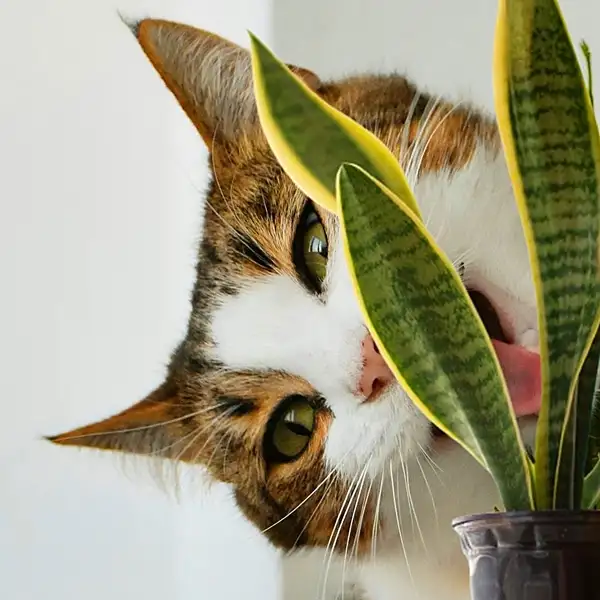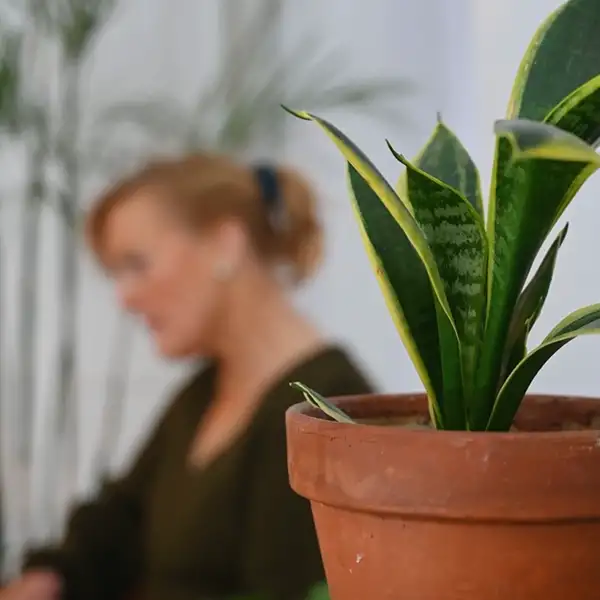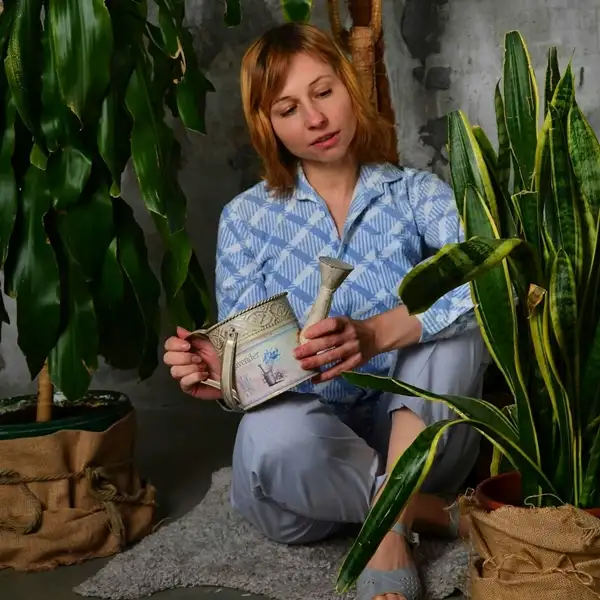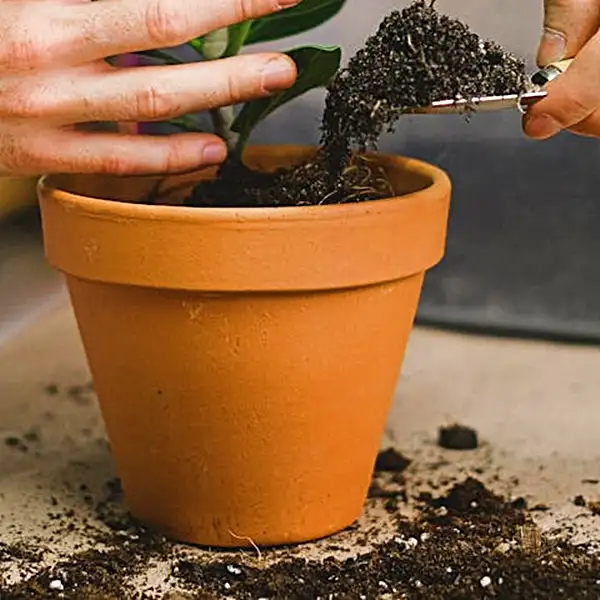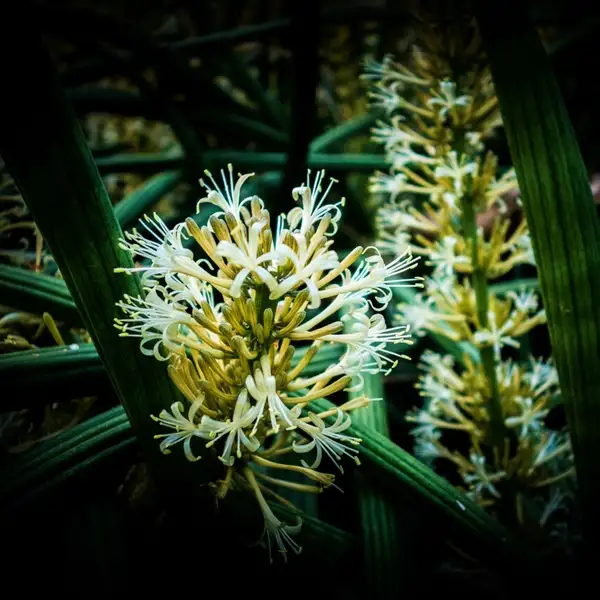Key Takeaways
| Key Takeaway | Why It Matters |
|---|---|
| Are Snake plants toxic to cats? | Find out the truth behind their toxicity and what makes them risky. |
| How do you know if your cat has been affected? | Learn the signs that indicate your pet may be in trouble. |
| What should you do immediately if your cat eats a snake plant? | Discover the crucial steps to take to ensure your cat’s safety. |
| Can a snake plant cause long-term harm? | Uncover the possible health consequences that might arise over time. |
| How can you keep both your plants and your cat safe? | Explore practical ways to create a pet-friendly home without giving up greenery. |
| What are some safer plant alternatives? | Check out pet-friendly plants that still beautify your space. |
Snake Plants Toxic to Cats
As a horticulturist with over a decade of experience working with houseplants, I have encountered countless cases where pet owners unintentionally exposed their cats to poisonous plants.
One such moment hit me when my cat ‘Luna’ showed alarming symptoms after nibbling on a snake plant. I wondered, are snake plants really dangerous to cats? I started gathering information & causes for toxicity of snake plants. From my experience, I can confidently assure you that there’s no need to worry—there are plenty of practical solutions to keep your cats safe while still enjoying the beauty of these striking plants.
My mom often says –
“Pets are like family, and plants are like friends – both need care and attention.”
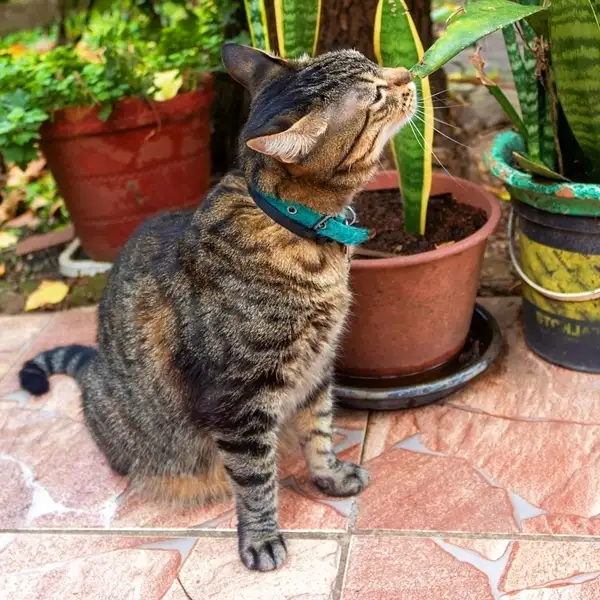
Snake plants also known as Sansevieria trifasciata, Dracaena Trifasciata or Mother-In-Law’s Tongue are popular for their characteristic elongated leaves & aesthetic appeal. They purify indoor air by removing toxins making them perfect houseplants. However according to American Society for Prevention of Cruelty to Animals (ASPCA) snake plants are poisonous to cats & dogs.
Their toxicity is due to saponins – naturally occurring plant glycosides that provide protection against microbes & fungi. While saponins are not harmful to humans but they cause adverse health effects on pets like cats & dogs if eaten. Level of toxicity is generally low but can lead to discomfort.
Snake plants’ resilient nature makes them a hearty addition to home decor but they pose a danger if you have feline companions in your household – even though cats typically avoid consuming such non-edible things.
What Happens When Cats Touch Snake Plants?

Exposure or consumption of snake plants may induce various gastrointestinal symptoms in cats owing to their toxic components. When munching on any part of this plant’s foliage– be it leaves or stalks—your furry friend could ingest those harmful saponins leading to potentially dangerous complications depending upon the quantity consumed vis-a-vis the cat’s overall health condition.
In some cases—though rare—it has been observed that exposure/touch via skin contact might cause dermatitis too. Sensitivity can differ from one cat to another; hence diverse reactions may be recorded among different felines showing signs of allergic responses after being around these houseplants without necessarily ingesting parts thereof.
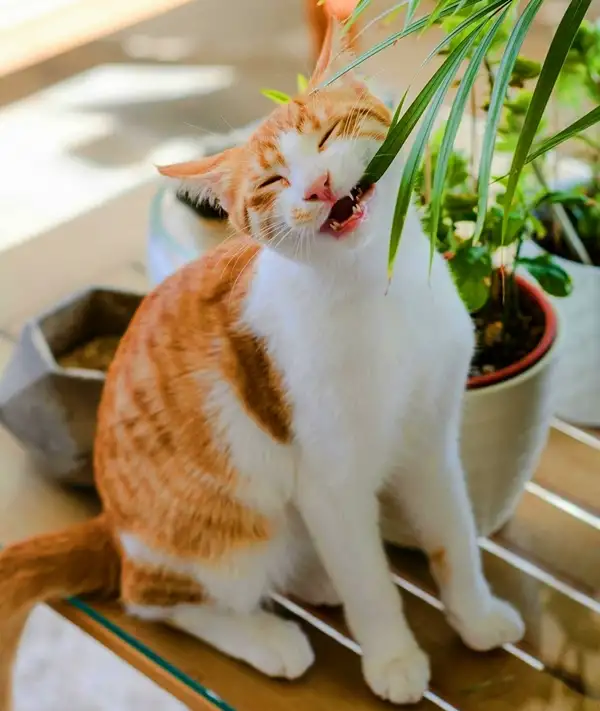
6 Symptoms: What Happens if a Cat Eats A Snake Plant?
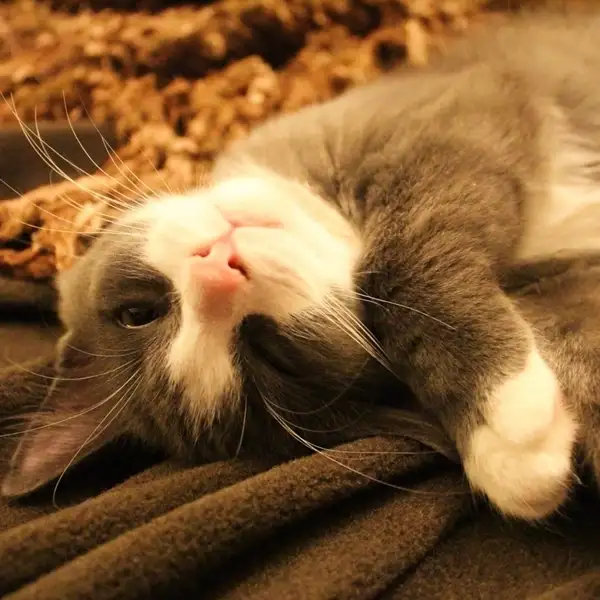
Should your curious feline find itself nibbling a snake plant leaf, several symptoms might indicate poisoning effects later on. Observations have identified some common signs, which are –
| Symptom | Description |
|---|---|
| Vomiting 🤮 | Frequent expulsion of stomach contents due to irritation caused by saponins in plant |
| Diarrhea 💩 | Loose or watery stools resulting from gastrointestinal upset |
| Excessive Drooling 💧 | Increased saliva production as a reaction to oral irritation |
| Lethargy 😴 | Unusual tiredness or lack of energy, indicating cat’s discomfort |
| Loss of Appetite 🍽️🚫 | Reduced desire to eat due to nausea or oral discomfort |
| Swelling or Soreness Around Mouth 😿 | Inflammation or pain in oral area from direct contact with plant’s toxins |
Though fatal scenarios are extremely rare when it comes to snake plant ingestion in cats, it is noteworthy that severity can range from mild irritation to substantial digestive distress depending on cat’s sensitivity & amount ingested.
6 Immediate Steps to Do if Your Cat Eats a Snake Plant
| Step | Action |
|---|---|
| 1️⃣ | Remove Access: Immediately take snake plant away from your cat to prevent further ingestion |
| 2️⃣ | Observe Symptoms: Monitor cat for signs like vomiting, diarrhea, drooling, lethargy or loss of appetite |
| 3️⃣ | Contact a Veterinarian: If any symptoms are observed, consult a vet promptly for guidance |
| 4️⃣ | Avoid Home Remedies: Do not administer treatments without professional advice as they may worsen situation |
| 5️⃣ | Provide Comfort: Keep your cat calm & comfortable while awaiting veterinary care |
| 6️⃣ | Prevent Future Incidents: Place snake plants out of your cat’s reach or consider removing them from your home |
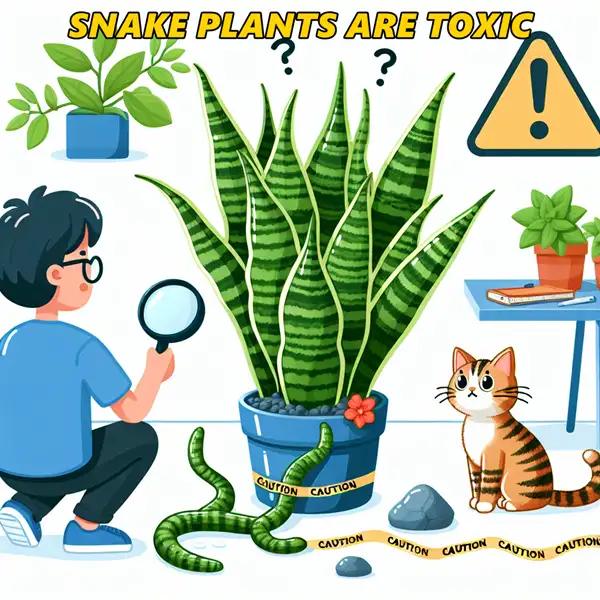
Long-term Health Impacts of Snake Plant Poisoning in Cats
Although severe cases are infrequent and fatalities are almost unheard of with snake plant toxicity in felines— sustained regular exposure could entail possible consequences for long-term health sometimes featuring compromised liver functions and other related complications as per few animal studies carried out context.
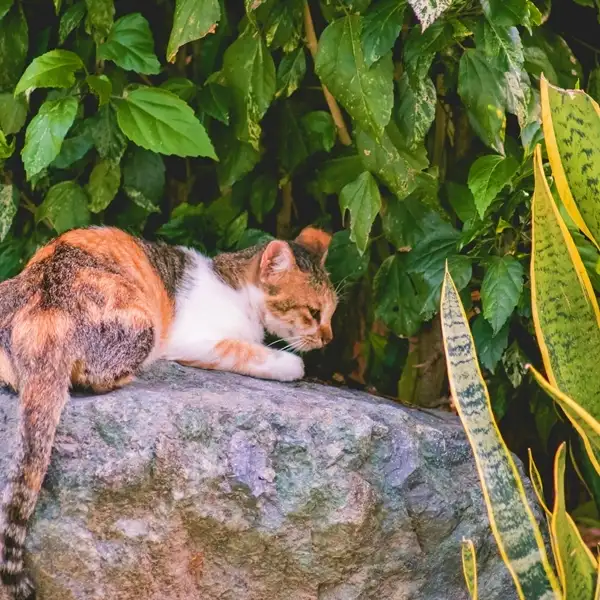
However, exhaustive research on the effects of snake plants being poisonous to cats is still lacking, leaving definitive results somewhat divisive among expert opinions. Prevention seems key here, though, provided the imminent danger posed by acute toxicity.
How to Keep Cats Away From Snake Plants
Maintaining separation between houseplants and furry friends is an effective way to reduce risk.
- Hence, consider placing these aesthetic plants in unapproachable areas, such as high shelves or closed rooms.
- They can also be secured in hanging pots at unreachable heights.
- Encouraging natural behavior towards edible, safe greens, like offering cat grass, may redirect attraction toward safer options.
- Alternatively, for cat parents who don’t necessarily need snake plants in their decor, opting for alternatives/equally elegant yet non-toxic plant varieties, like Boston fern or spider plant, would be ideal.
Separation is The Solution
As this is a very common question among gardeners and pet owners – are snake plants toxic to cats? Yes, they are toxic but applying simple preventions mentioned above is enough to keep both snake plants & cats in a healthy & green home.
Protecting your feline friend from the potential toxic effects of snake plants primarily involves educating yourself on risks & acting proactively to create a safe environment. After all, happy & healthy pets signify happy homes!
Frequently Asked Questions
What happens if a cat licks a snake plant/toxic plant?
Licking exposes cat to small amounts of saponins which may cause mild irritation, drooling or sore mouth. While less harmful than eating, it can still lead to digestive upset.
Will a snake plant kill my cat?
Snake plants are toxic but rarely fatal. They usually cause vomiting, diarrhea or lethargy. However, frequent exposure or large consumption increases the risk.
How toxic are snake plants?
They have low to moderate toxicity for pets. Ingestion causes discomfort, including vomiting & diarrhea. Prevention is best way to keep pets safe.


